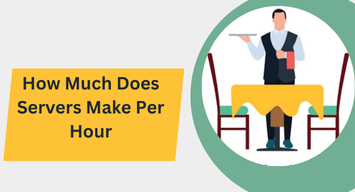Hidden Gems in Colorado: Off-the-Beaten-Path Destinations to Explore
The beautiful mountains in Colorado are world-famous. The amazing scenic trails of Colorado are filled with charming towns. There are many famous spots. As a tourist, Colorado is an amazing choice. There are many amazing sites to discover. The famous Rocky Mountains National Park is an amazing tourist spot. The treasure of Denver, Aspen, is also an amazing tourist attraction. Get ready for this unique experience. Hidden Gems in Colorado Get ready to explore the hidden gems in Colorado. Plan ahead because it is a unique and challenging journey. There are some locations that require 4×4 vehicles. Prepare your snacks and stay hydrated. Make sure you have your hiking or exploring gear ready. Help preserve the beauty of these places by following the zero trace policy. The places are usually less crowded on weekdays. Off-season is also a good time to book this holiday. Paint Mines Interpretive Park Located near Calhan, the Paint Mines Interpretive Park is a rock formation wonder. There are amazing hues of vibrant-coloured rocks. This picturesque destination is relaxing. Makes us feel like being on a different planet. The place is an amazing spot for hiking. It is not very busy, which makes it a quiet and peaceful spot. Bishop Castle The beautiful handmade marvel is unique. Jim Bishop built this castle. Located in San Isabel National Forest, it has beautiful features. There is a unique feature of a fire-breathing dragon. Experience this castle and get a chance to witness once in a lifetime experience in Colorado. It has free entry. The fascination with quirky and whimsical design makes this a wonder to enjoy. Great Sand Dunes National Park and Preserve Sand Dunes Park is slowly gaining popularity. However, it is still a hidden gem of Colorado. Enjoy the backdrop of a mountain setting with towering dunes display. This landscape feels mystic. The quiet place is a relaxation point for many tourists. Get the unique experience of climbing, hiking, or even sandboarding. Colorado has some of the darkest skies in the world. Get a chance to night gaze at stars. Medano Creek is a famous spot for splashing in summer and spring. Crestone Nestled in the Sangre de Cristo mountains, Crestone is a spiritual town. There are many meditation centres at this place. Many hiking retreats and breathtaking scenery allow a serene atmosphere. Crestone Ziggurat is a must-visit. Crystal Mill The famous photographed spot of the town of Marble and Crystal Mill is also a tourist spot. Reached after a rugged trail, the beautiful mill has a rushing river underneath. There is a chain of beautiful mountains surrounding the place. Rifle Falls State Park Another perfect spot is Rifle Falls. It has stunning waterfalls. Lush greenery followed by beautiful caves is a relaxing station. It is a very suitable destination for both single tourists and families. Nature photography is captured best at this place. Dunton Hot Springs The restored ghost town hosts this luxurious resort. There is both relaxation and adventure experienced here. This place is another famous spot for tourists alone and with families. The private cabins are also available. Experience the most surreal feeling of fine dining at this spot. There are many activities available here, such as horseback riding and hiking. Kebler Pass Get a chance to experience the most scenic drives in Colorado at Kebler Pass. Fall is the perfect season to visit this place. The stretch of the golden aspen trees for miles is beautiful. The most magical landscape is the perfect hidden gem in Colorado. Wildlife spotting and hiking are some of the amazing things to do here. Black Canyon at Gunnison National Park The black canyon of Gunnison is another hidden gem. It has beautiful steep cliffs. These dramatic views make them a must-visit place. Adventure seekers enjoy hiking and water sports at this spot. Gunnison River is famous for fishing and kayaking. The perfect spot for camping under the star-scattered sky is surreal. Telluride’s Bridal Veil Falls The charming town of Telluride is mountain-covered. Bridal Veil is also an incredible 365-foot waterfall at Telluride. It is beautiful to view and an experience hike for tourists. There are many picturesque spots. Different levels of hiking trails are available to choose from. Conclusion There are many surprising spots in Colorado beyond the famous attractions. Make unforgettable memories at the place with mesmerising views. Crystal Mill hiking or Dunton hot Spring soak, every experience is unique. Colorado has something for everyone. These places are unique. This is one of the reasons why they are not very crowded. Offering a peaceful retreat. Get a chance to explore and connect with yourself. Crestone offers a chance to connect with nature and bond with your spirit in the most scenic surroundings. These serene spots are a must-visit on your next trip. Witness these once-in-a-lifetime things to do in Colorado and build memories that last forever.









